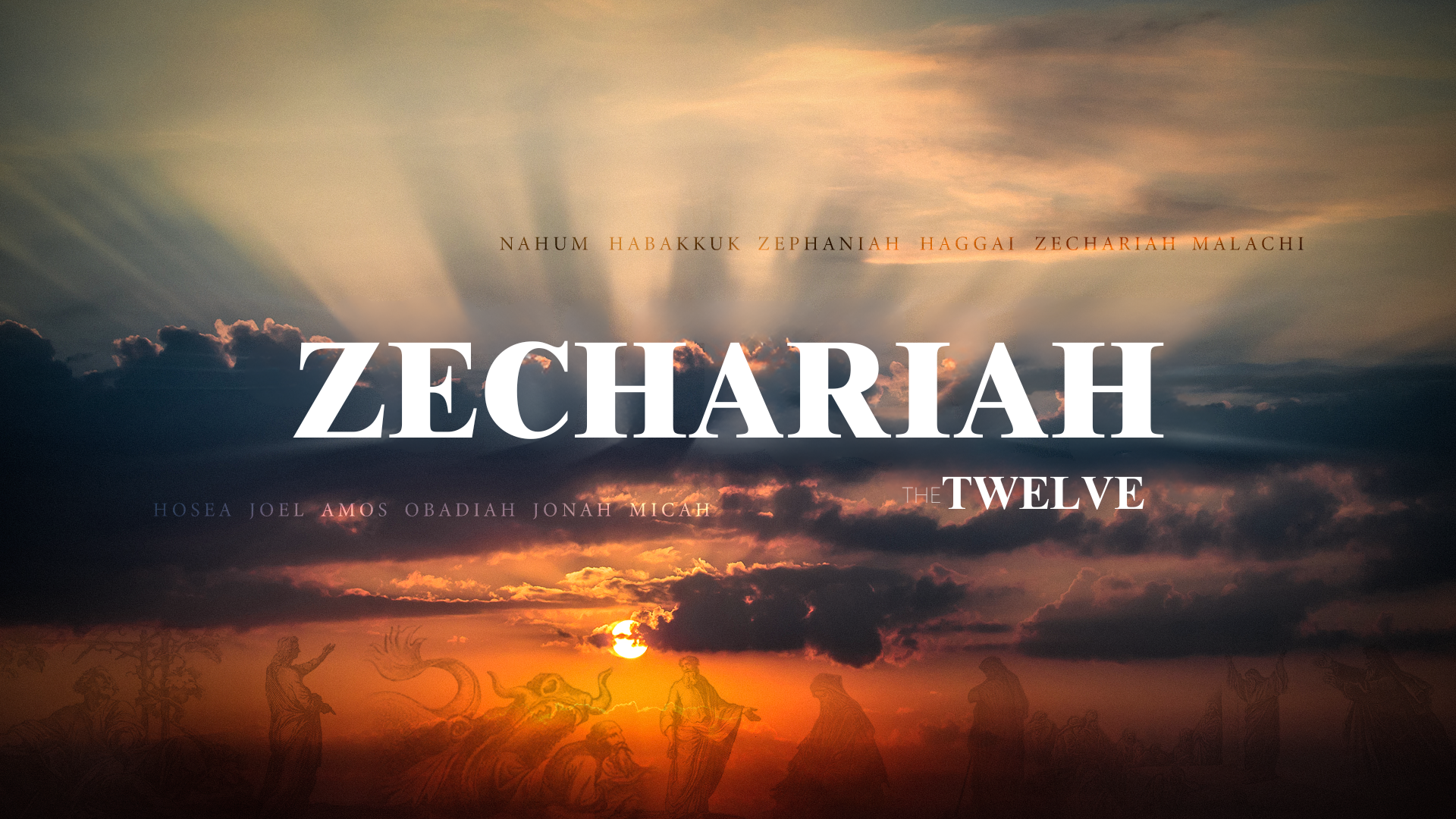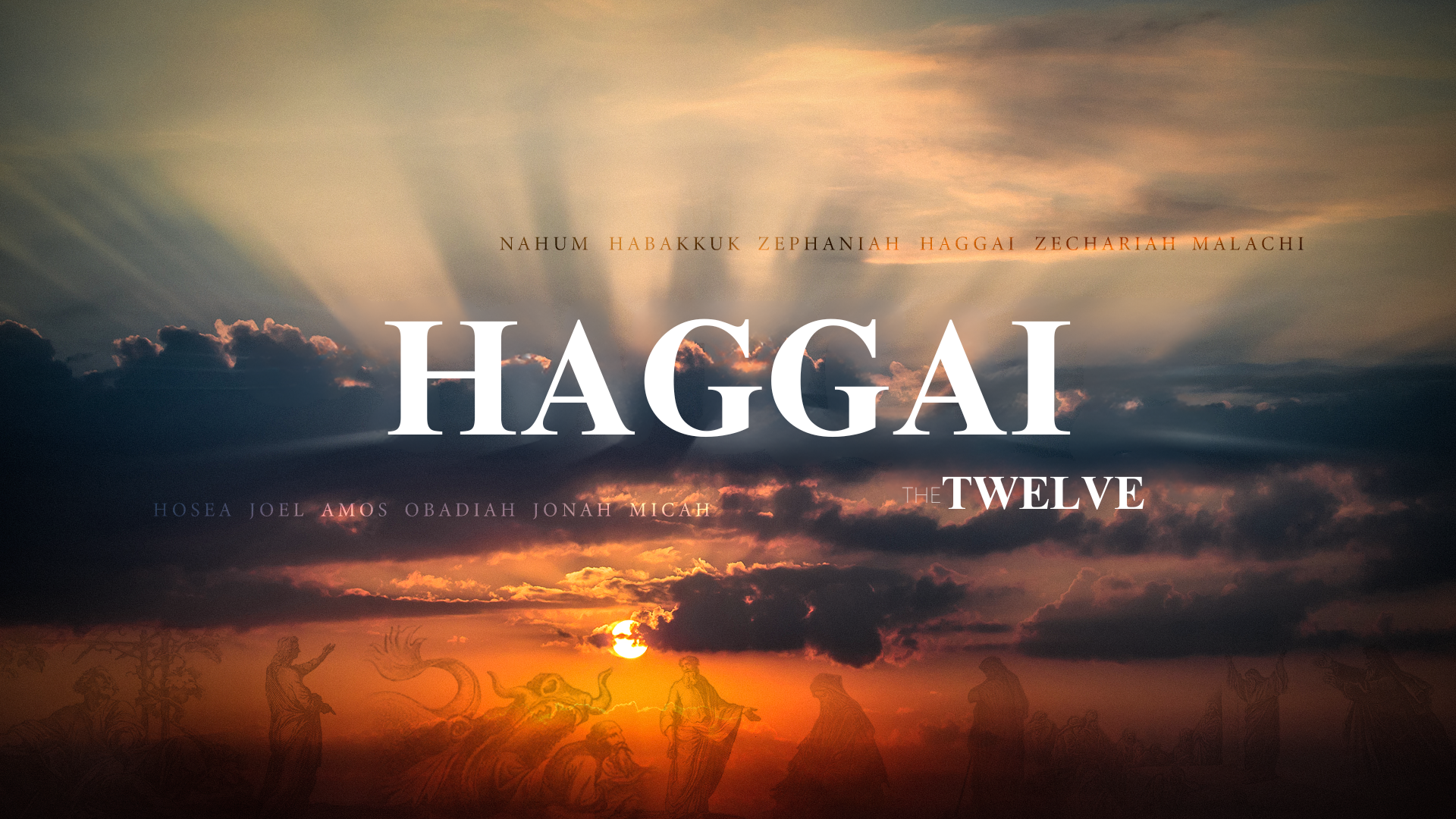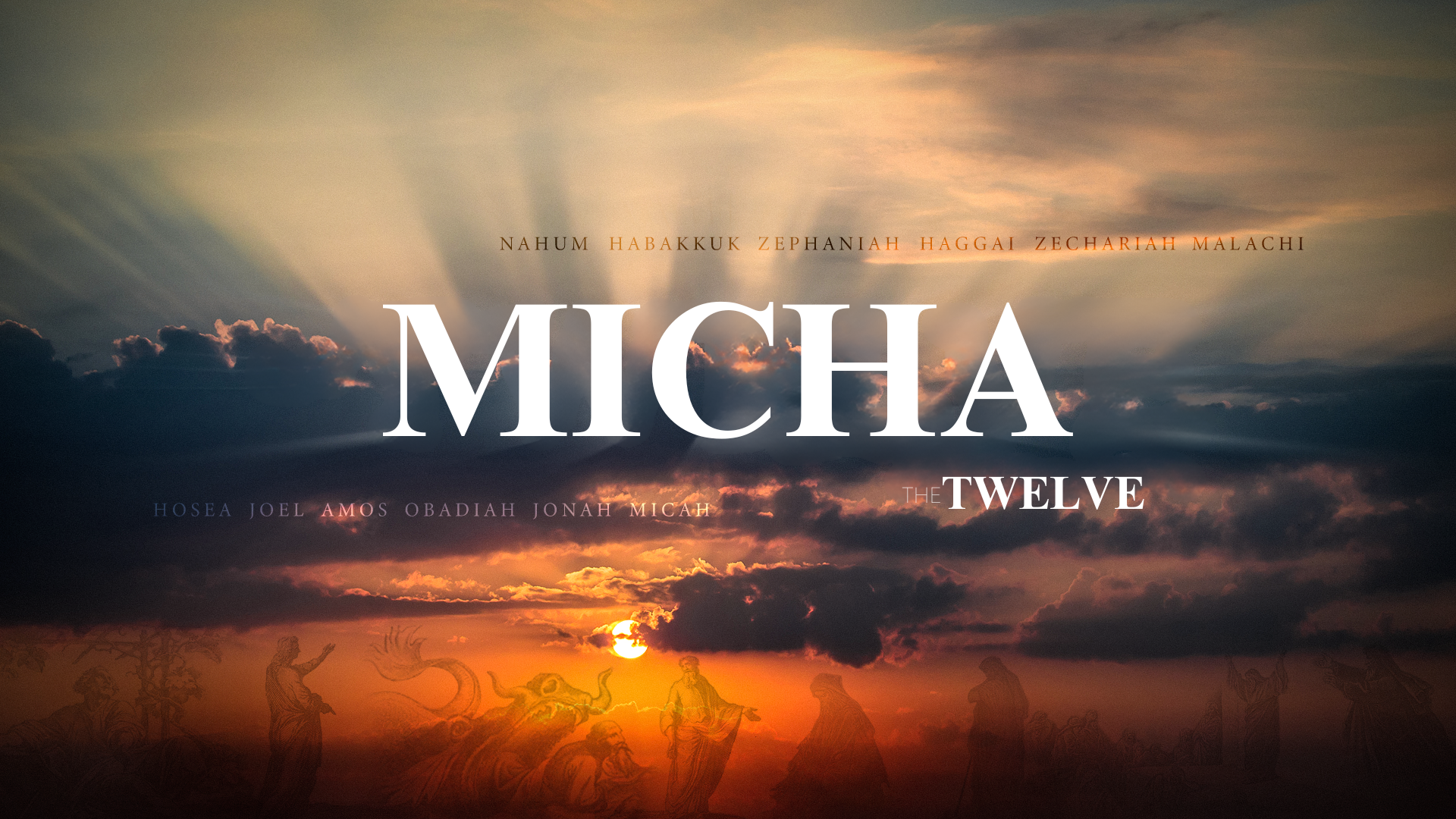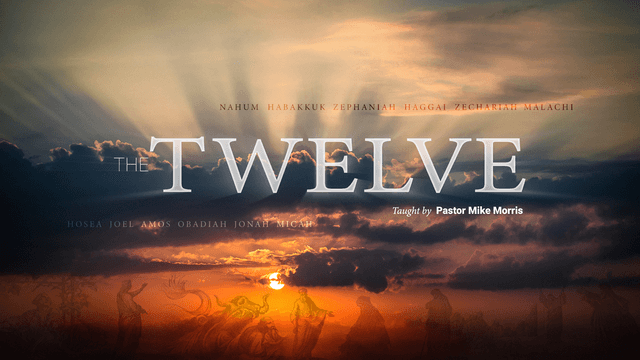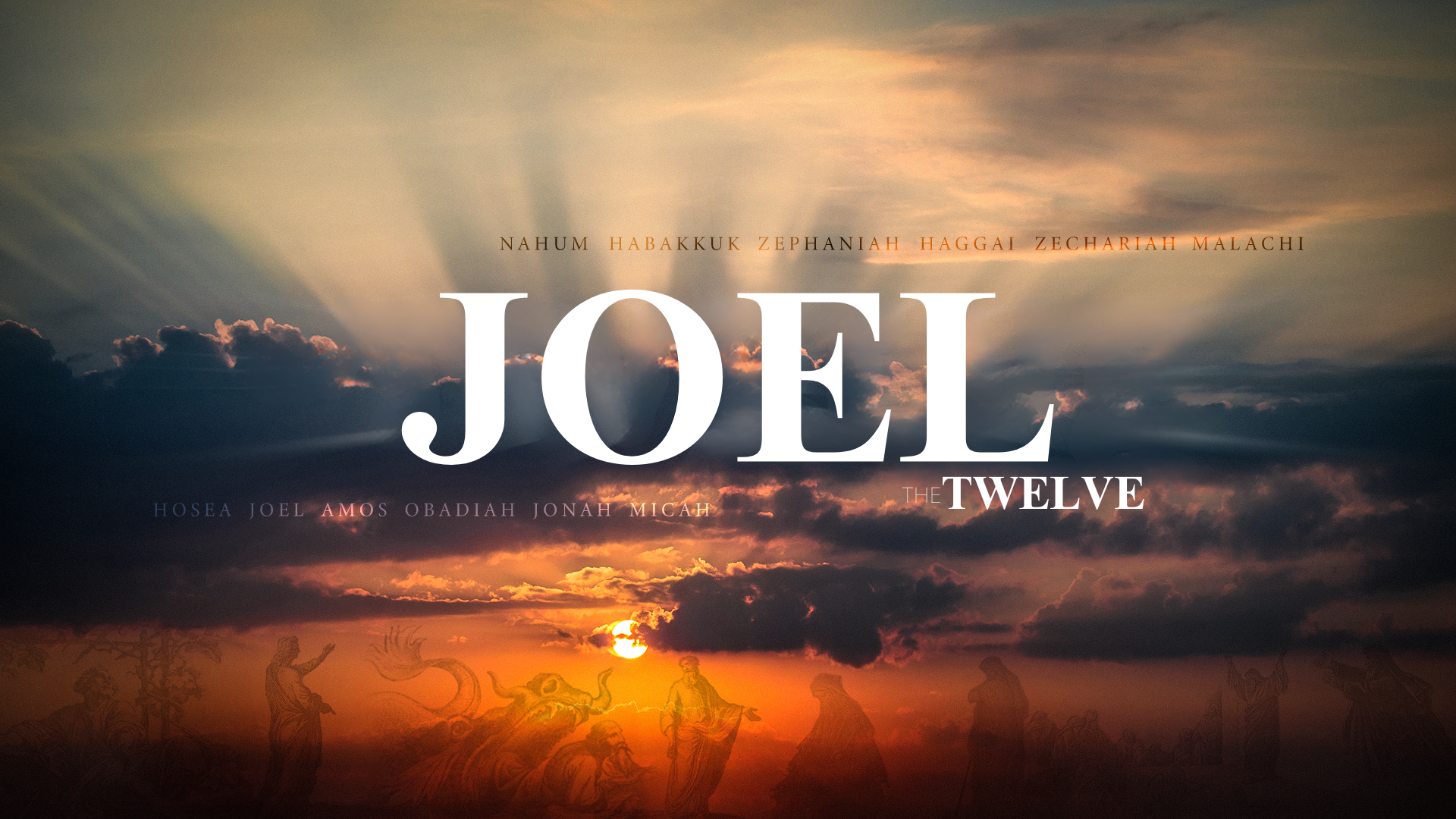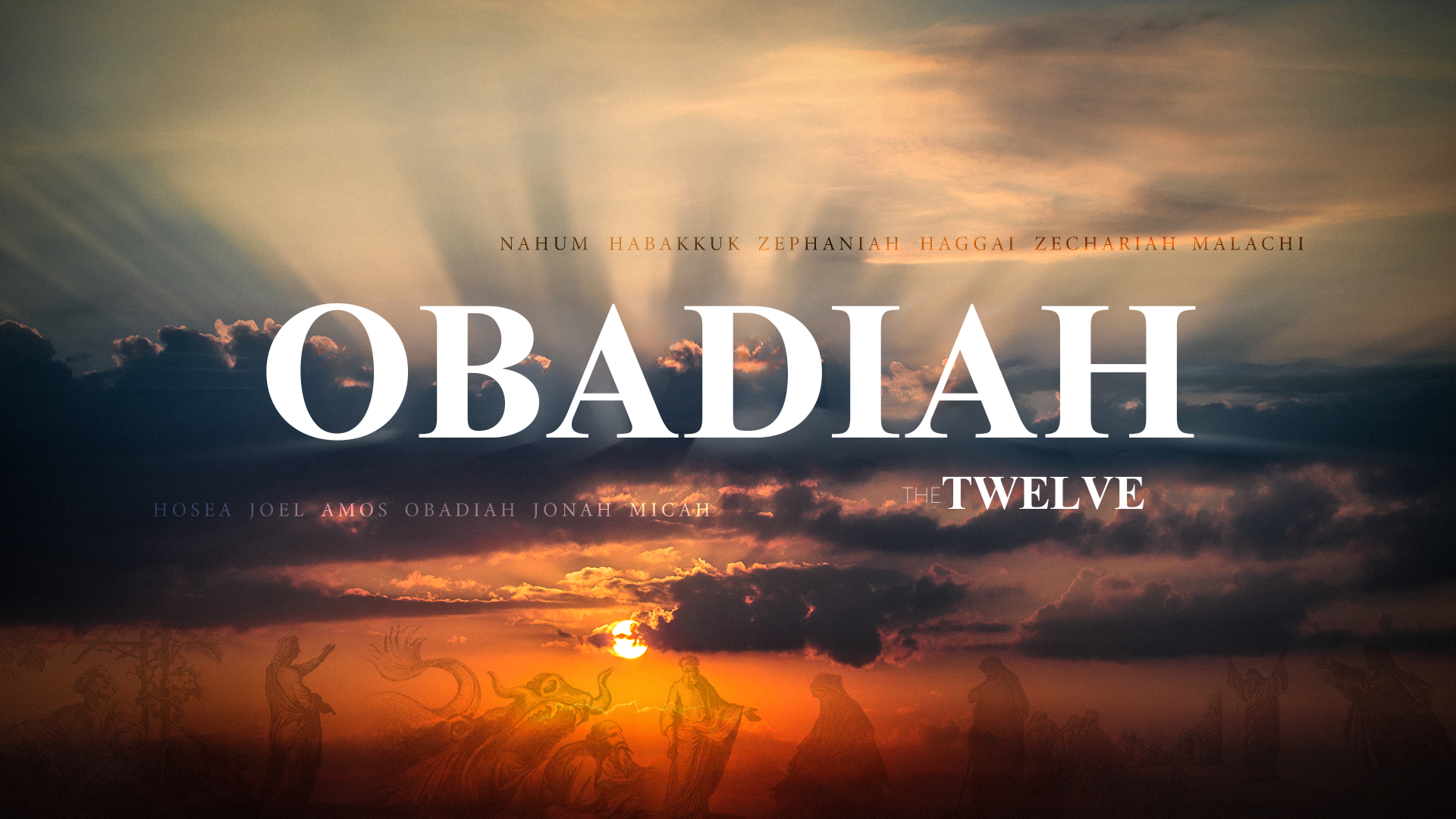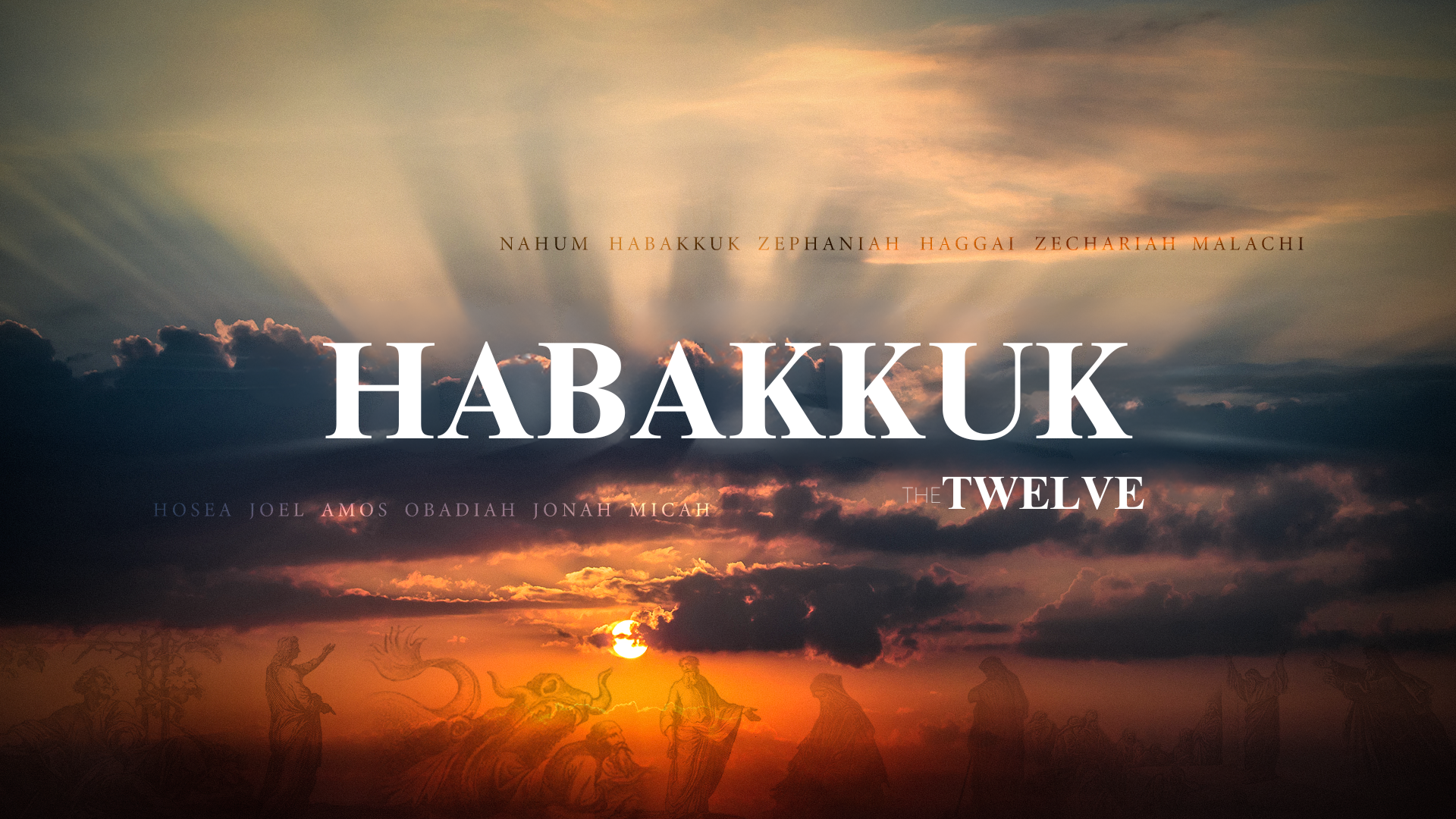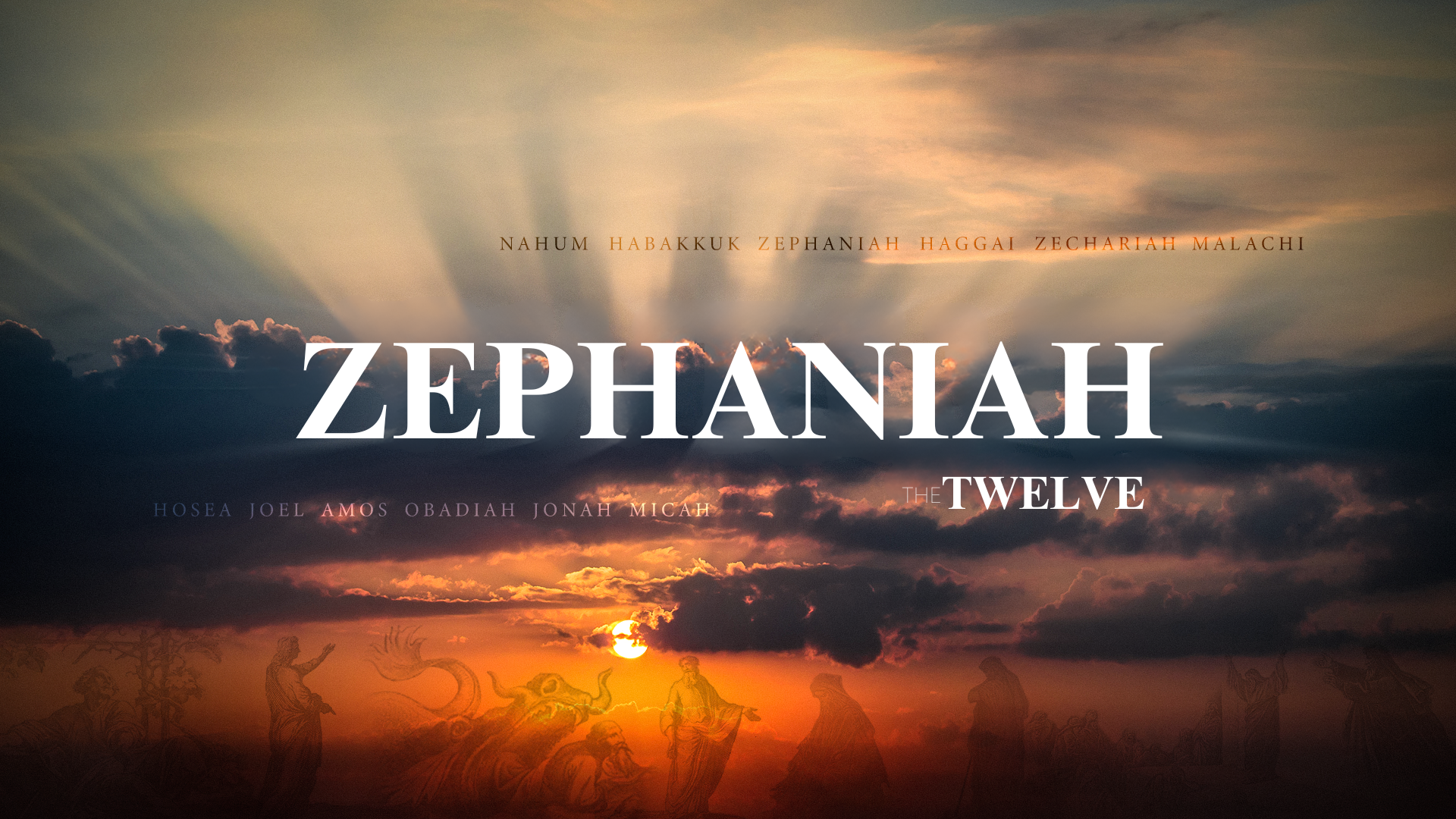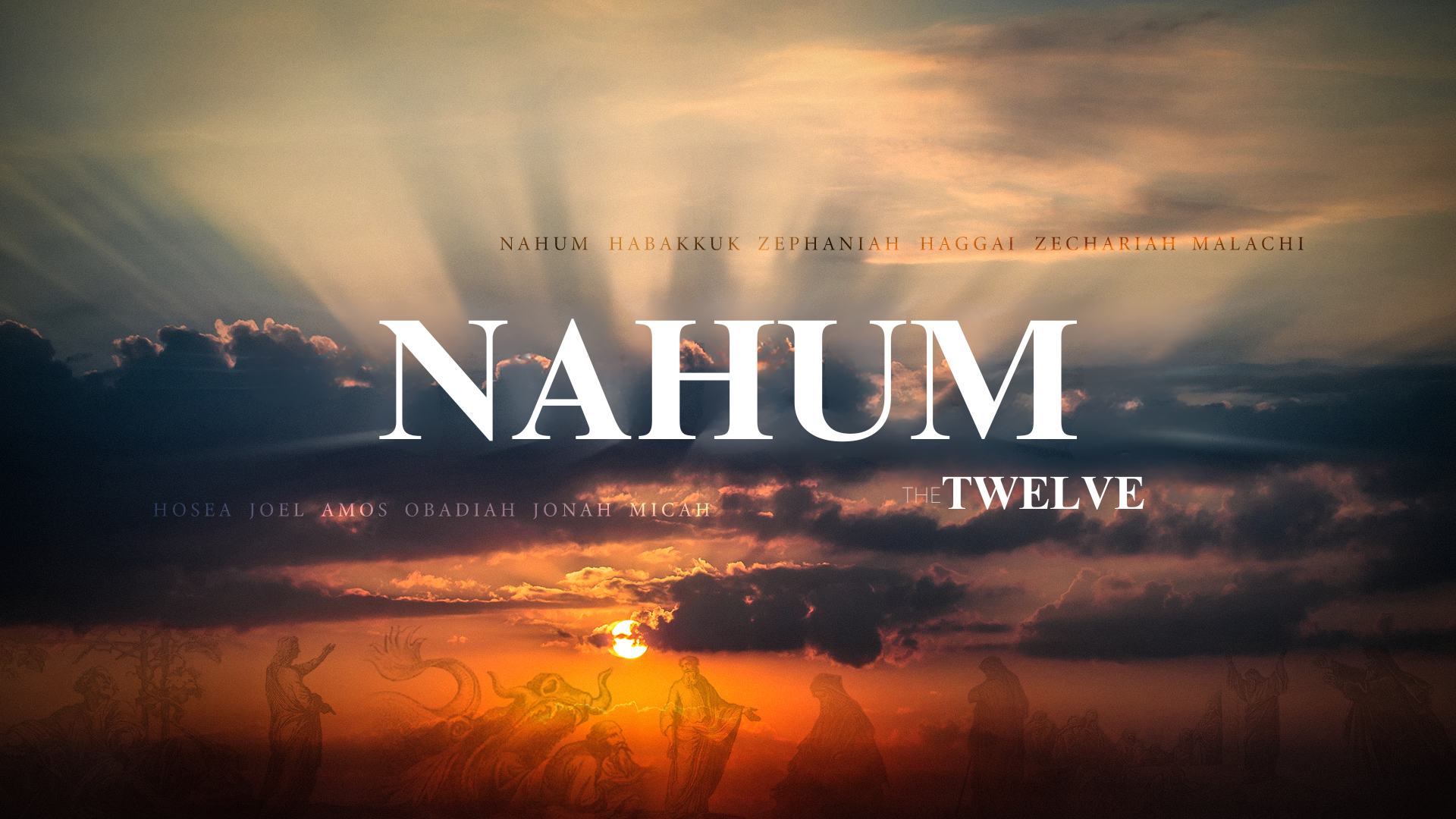MANUSCRIPT
Welcome back to our study of the Twelve, the ancient Hebrew name for the Old Testament books we call the minor prophets...the last twelve books in your Old Testament...they were
considered a single entity in the OT scriptures...
Today we continue our study of the book of Habakkuk...
To see the historical setting, let’s look at the timelines of the two Israelite nations in the time of the divided monarchy, Israel in the north and Judah in the south...
The voices of the prophets ceased in the north as the Assyrians crushed Israel, taking them into captivity in 722 BC, an exile from which they never returned...
Judah endured another 135 years before falling to the Babylonians, the nation which conquered the Assyrians...our studies of Jonah through Zephaniah are available on our website, vbvf.org, under the “Old Testament”...look for the series entitled “The Twelve”
As we continue, let’s quickly review some key elements that will help us set this book in its context...all we know about the author is that a prophet named Habakkuk wrote the book...based on the internal evidence of the book – what the book says within itself – we can place the date between 608 and 598 BC...this date range means Habakkuk was a contemporary of Nahum, Zephaniah, and Jeremiah...based on the date and content of the book, we know that Habakkuk lived and prophesied during a time of national and religious decline, watching the descent of his people into complete sinful apostasy...the book is quite different from other biblical books because rather than speaking FROM God TO the people, like other prophets, Habakkuk speaks a message FROM his own heart and mind TO God...thematically, in his commentary Faith Amid the Ruins Heath Thomas says that The center and focus of the book of Habakkuk is living by faith in the light of the faithfulness of God. ....that’s a good summary...the book is written in three passages...we’ve covered Habakkuk’s first complaint and God’s response in 1.1-11, so let’s review what we learned last time...
We learn that God is aware of all that happens in His creation, and as the righteous Judge, He will surely deal with sin...
We learn that God is active in our world...
We learn that God is answering the prayers of His people...God is not offended by our honest questions, or even our doubts, but let us not hold on to our doubts in our hearts and minds...instead, let us rest in faith and trust before our God...
Today we look at the second complaint and God’s response...and next time will be Habakkuk’s declaration of faith in God, which is all of chapter 3...so let’s jump into the text!
Habakkuk’s Second Complaint 1.12-2.1
Having been told by the Lord that He would use the Babylonians to bring His judgment upon Judah, Habakkuk has what you could call a “follow-up” question...let’s listen as Habakkuk turns to God in prayer...
Habakkuk crafts this complaint very carefully, in four parts...let’s look at them individually.
First, the prophet affirms the character and nature of Yahweh God...
12 Are you not from everlasting,
O Lord my God, my Holy One?
While it’s phrased as a question, Habakkuk knows the answer...yes, God is from everlasting, declaring the eternal nature of God, that He has always been and He always will be...for He is Yahweh, His covenant Name given to the people of Israel...He is God, Heb Elohim, the Ruler of the Universe, and He is the Holy One, Heb qa-dos, ‘ka-dosh’ – the One who is not like us, the Other, the One who is both separate and perfectly pure...
Second, Habakkuk describes who His people are in relation to God...
We shall not die.
Because of who Yahweh is, Habakkuk can confidently say “We shall not die” – for they were the covenant people of God: He had pledged to be their God, and they would be His people
Third, Habakkuk describes what God has done...
O Lord, you have ordained them as a judgment,
and you, O Rock, have established them for reproof.
In His response to Habakkuk’s first complaint, God told Habakkuk that He was going to use the still-rising nation of Babylon to be the instrument of His judgment and discipline to the nation of Judah...the prophet acknowledges what God said, that He has ordained and established them for the correction of Judah...
Fourth, Habakkuk finally gets to his question, which is based on all of the prophet’s first three statements...
13 You who are of purer eyes than to see evil
and cannot look at wrong,
why do you idly look at traitors
and remain silent when the wicked swallows up
the man more righteous than he?
Habakkuk puts all the pieces together to say this: “You are a holy and pure God, who is so morally perfect and righteous that you cannot even look upon evil or wrong...how can You choose to use a nation that is so completely removed from Your own character? They are traitors to Your nature – how can they be as wicked as they are, yet be Your chosen instrument of judgment? And how can You allow the more wicked Babylonians to triumph over the less-wicked nation of Judah? Doesn’t that violate Your own divine standards of righteousness and justice?”
This leads us to our first truth in our outline ... Faith trusts and asks questions at the same time
We can, and I think must, in faith seek to understand God and His ways...trusting and questioning are not incompatible...I see them as two parallel tracks that lead us to the heart of God...
To continue his point, Habakkuk compares Judah – and the other nations of the region dominated by the Babylonians – to fish, and the Babylonians are fishermen.
14 You make mankind like the fish of the sea,
like crawling things that have no ruler.
15 He brings all of them up with a hook;
he drags them out with his net;
he gathers them in his dragnet;
so he rejoices and is glad.
16 Therefore he sacrifices to his net
and makes offerings to his dragnet;
for by them he lives in luxury,
and his food is rich.
17 Is he then to keep on emptying his net
and mercilessly killing nations forever?
Habakkuk adds another point to his argument with the Almighty...he reminds God that the Babylonians do not know or honor Yahweh...here, he compares their idolatry to a fisherman worshiping his nets, since by them he is made rich...the Babylonians are, in fact, idol worshippers, bowing to the deification of their own power and might, as we learned in verse 11...and were they to continue this brutal oppression forever?
Having asked his question, Habakkuk awaits God’s response...
1 I will take my stand at my watchpost
and station myself on the tower,
and look out to see what he will say to me,
and what I will answer concerning my complaint.
Habakkuk models two important qualities for believers – confidence and patience...he is confident in the Lord’s desire to communicate with him, as we should be...and Habakkuk is patient to watch and wait to see what the Lord says about his concerns...that’s a lesson for us to be patient and, as the text says, “look to see what He will say to me...”
The Righteous Shall Live by Faith 2.2-4
Now we come to the central focus of the book...we’ve heard Habakkuk’s first and second complaints...he is seeking to understand a fundamental issue about God, called a theodicy: a vindication of God’s goodness and justice in the face of the existence of evil...how can a righteous God tolerate and even use the wicked? If God is sovereign and holy and just, how can He tolerate human society that is unjust, godless, and evil? Habakkuk, first among all the prophets, wrestles with this question... he’s standing at his post waiting to hear from the Lord...
Now God speaks...
2 And the Lord answered me:
“Write the vision;
make it plain on tablets,
so he may run who reads it.
3 For still the vision awaits its appointed time;
it hastens to the end—it will not lie.
If it seems slow, wait for it;
it will surely come; it will not delay.
What is this vision of which the Lord speaks? That’s not entirely clear...“word” means a revelation, a supernatural message...God tells Habakkuk to write it down, the language is to carve on a stone tablet...make it plain, so others can read it, the messengers can take the word far and wide...to ”read it” carries the meaning of shouting or proclaiming the word or message...
Verse 3 is an important truth for us...the vision God gave Habakkuk wasn’t for that day...it was certain to come to pass, but it would not immediately...there is an appointed time, a day set in God’s own providence and sovereignty...and while it is not immediate, it is nevertheless true...our task is to wait through what we perceive as a delay...
This can be a difficult truth...sometimes – often – we must wait for God’s work and His plan to come to pass...like Habakkuk on the watchtower, we stand and wait to see what God will do, not fully understanding His purposes or His ways...and that task is made more trying by our tendency in the flesh to judge God in the short term while He is working in the long term...we expect to see results and answers now, while God is saying to us, “the vision is coming, it’s not late, wait for it...” ... generally, people don’t like waiting...we want God to act on our schedule, and according to our standards of who and what are righteous and unrighteous...but the Lord is insistent that He is simply going to act as He knows is best...and we must respond to Him in
faith...verse 4 is the central verse of the book...
4 “Behold, his soul is puffed up; it is not upright within him,
but the righteous shall live by his faith.
That’s the second thing faith does – write this in #2: Faith guides our lives in Christ
And faith – that relentless trust that God is alive and well and working according to His plan for His glory and our good – is what guides our lives...here we see that faith is how the righteous live their lives...Paul in II Corinthians 5.7 tells us the same truth: we walk by faith, not by sight. The choices we make, the attitudes we hold, the words we say, the actions we take, are guided by faith in God, not by the way we perceive the world...
And we apprehend the truth in really only one way: by faith...as Hebrews 11.1 says, Now faith is the assurance of things hoped for, the conviction of things not seen. ... when we can’t see what God is doing, and especially when what we see in our world doesn’t fit what we think God should be doing, we struggle, just as Habakkuk did...
Dr. C. Hassell Bullock describes this tension this way:
Faith and fact are not always compatible in the world of sense and sight, but that is not the whole world. There is a world of justice that only God fully comprehends. His people must accept by faith what they cannot confirm in fact.
What we do and say, we do and say because we know and trust God, even if we don’t understand everything about Him and what He’s doing in our lives...
And this verse becomes critically important in the NT...Paul quotes Habakkuk this verse Romans 1.17 and Galatians 3.11, and the author of Hebrews quotes it in Hebrews 10.38-39; also, this verse could be considered the fuse of the Protestant Reformation as the Holy Spirit used Habakkuk 2.4 to transform Martin Luther and restore the gospel to the church...
But living by faith isn’t how the world operates...the Babylonians, representing the world and the ways of the world, do not live by faith – God says of them, Behold, his soul is puffed up; it is not upright within him.
The soul who knows not God is “puffed up” – proud, arrogant, self-reliant and self-controlled; and because of that focus on self and self’s place in the world, they are not “upright” – the Hebrew word means to be straight, smooth, and right...
The passage to follow proves this point...Dr. Kenneth Barker says it this way:
The remainder of the Book of Habakkuk illustrates the truth of Habakkuk 2:4: “See, he is puffed up; his desires are not upright—but the righteous will live by his faith.” The series of woes confirms the truth of the Lord’s message. The arrogant ultimately will fall under the weight of their sin; the righteous will live by faithfulness to God.
Woe to the Babylonians 2.5-20
Verses 5 through 20 of chapter 2 make up a taunt song directed to the Babylonians, containing five stanzas...each of the five stanzas is written according to a pattern: a woe, a threat, and a result...this is written as if coming from Judah and the other nations who had been conquered by the Empire...as they anticipate God’s righteous judgment of the Babylonians, their victims rejoice as the wicked are punished...
And it didn’t take long for God to exact judgment...Judah was conquered and taken into exile by Babylon in waves of deportation between about 608 BC and 587 BC, eventually returning to the land of Judah in 539 BC when Babylon was conquered by Cyrus and the Achaemenid Empire; the return of the Jews to the land culminated with the rebuilding of the Jewish Temple in Jerusalem in 512 BC
So while they did not know at the time, Babylon’s clock was ticking even as they conquered Judah...it would not be long before the people of the region would sing this taunt song to their conquerors...
This brings us to our third truth about what faith does...
Faith knows God is in charge
Even when it looks as if the wicked will prosper, never forget that God is sovereign...as we learned in our last midweek study in Psalm 22.28...
For kingship belongs to the Lord,
and he rules over the nations.
Verse 5 sets the stage for the five woes to follow...
5 “Moreover, wine (wealth) is a traitor,
an arrogant man who is never at rest.
His greed is as wide as Sheol;
like death he has never enough.
He gathers for himself all nations
and collects as his own all peoples.”
Different translations can render the word as “wine” or “wealth”...either way, this describes the Babylonians...their desire for selfish pleasures was endless...they were never at rest, never content, for there is no satisfying the greedy desires of a soul set on self...
Verse 6 begins the five woes...
6 Shall not all these take up their taunt against him, with scoffing and riddles for him, and say,
#1 Habakkuk 2.6-8
“Woe to him who heaps up what is not his own—
for how long?—
and loads himself with pledges!”
7 Will not your debtors suddenly arise,
and those awake who will make you tremble?
Then you will be spoil for them.
8 Because you have plundered many nations,
all the remnant of the peoples shall plunder you,
for the blood of man and violence to the earth,
to cities and all who dwell in them.
The Babylonians plundered those whom they conquered, taking everything of value...here the victims are referred to as debtors, all the remnant of the peoples who survived the Babylonian attack, will in turn plunder the Babylonians in their defeat...
#2 Habakkuk 2.9-11
9 “Woe to him who gets evil gain for his house,
to set his nest on high,
to be safe from the reach of harm!
10 You have devised shame for your house
by cutting off many peoples;
you have forfeited your life.
11 For the stone will cry out from the wall,
and the beam from the woodwork respond.
They were also guilty of plotting against others...devising shame for their own house or empire, taking evil gain in a futile attempt to be beyond the reach of any enemy...but their own house will ultimately fall apart (verse 11)...
#3 Habakkuk 2.12-14
12 “Woe to him who builds a town with blood
and founds a city on iniquity!
13 Behold, is it not from the Lord of hosts
that peoples labor merely for fire,
and nations weary themselves for nothing?
The conquests of the Babylonians were literally built on blood...cities and towns destroyed, just as Jerusalem was to be destroyed...their victories built on sin and iniquity...verse 13 echoes Jeremiah, a contemporary of Habakkuk, as he says of Babylon (Jeremiah 51.58)...
“Thus says the Lord of hosts:
The broad wall of Babylon
shall be leveled to the ground,
and her high gates
shall be burned with fire.
The peoples labor for nothing,
and the nations weary themselves only for fire.”
But God’s purposes will be accomplished...we get a glimpse of that blessing in verse 14...
14 For the earth will be filled
with the knowledge of the glory of the Lord
as the waters cover the sea.
What a poetic and beautiful picture of the kingdom of God come to earth...sin and wickedness will be no more, all peoples will know and honor God, and righteousness will be so complete that you could say the earth itself was filled with God’s glory...
#4 Habakkuk 2.15-17
15 “Woe to him who makes his neighbors drink—
you pour out your wrath and make them drunk,
in order to gaze at their nakedness!
16 You will have your fill of shame instead of glory.
Drink, yourself, and show your uncircumcision!
The cup in the Lord's right hand
will come around to you,
and utter shame will come upon your glory!
17 The violence done to Lebanon will overwhelm you,
as will the destruction of the beasts that terrified them,
for the blood of man and violence to the earth,
to cities and all who dwell in them.
Though all the acts of the Babylonians were shameful, this is called out for special condemnation...the empire was noted for drunkenness, but this is even worse...humiliating others, filling up their shame...note the rich irony...you used the cup as a weapon against others, now the cup of judgment in the Lord’s right hand will come around to you...the shame you caused for others will be visited upon you, turning your glory to humiliation...
#5 Habakkuk 2.18-20
18 “What profit is an idol
when its maker has shaped it,
a metal image, a teacher of lies?
For its maker trusts in his own creation
when he makes speechless idols!
19 Woe to him who says to a wooden thing, Awake;
to a silent stone, Arise!
Can this teach?
Behold, it is overlaid with gold and silver,
and there is no breath at all in it.
20 But the Lord is in his holy temple;
let all the earth keep silence before him.”
This fifth woe is about the idolatry of the Babylonians...the violence they had wreaked on others would come back on their own heads, and the false gods and idols they worshiped, especially themselves, would be of no benefit in their day of judgment...wooden figures overlaid with gold or silver cannot teach or rise or breathe...if you turn to anyone or anything other than the God of the Bible as your God, you’re trusting in your own creation...the final verse of the chapter is a fitting conclusion...the sovereign God, Maker of Heaven and Earth, is still on His throne...no one has ever taken His place and no one ever will...and while we can ask questions of Him and pray
to Him and listen for His voice, sometimes the right thing to do is follow Psalm 46.10...
“Be still, and know that I am God.
I will be exalted among the nations,
I will be exalted in the earth!”
Application
So let’s think through what we’ve learned from Habakkuk’s second conversation with God...are there lessons for us about faith?
Faith trusts and asks questions at the same time
Faith guides our lives in Christ
Faith knows God is in charge
Church, let us remember these things as we walk by faith, not by sight this week...

Taught by Mike Morris
Associate Pastor of Verse By Verse Fellowship
The Twelve Series
